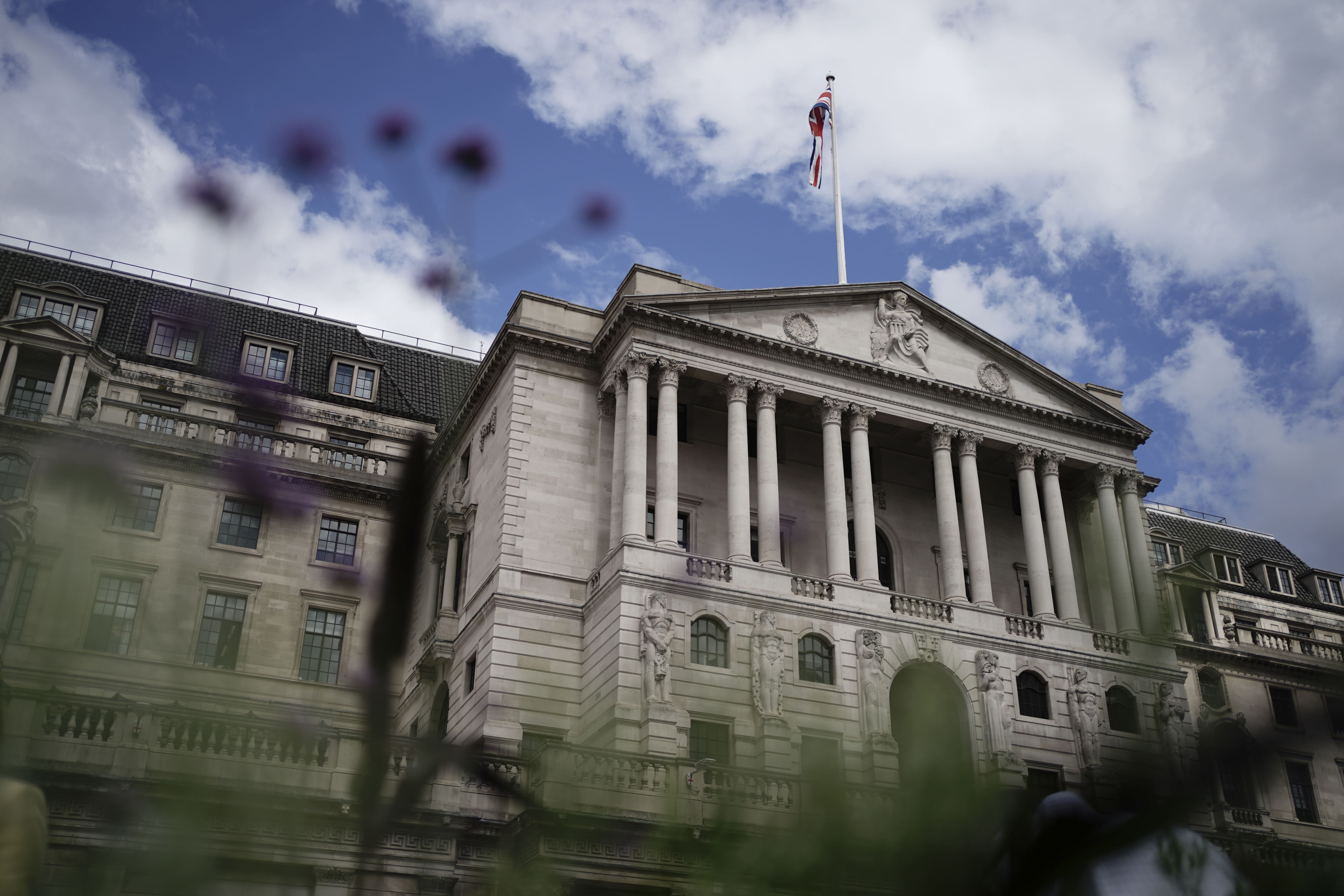Economy faces growing risks from global financial markets, Bank warns
But it said households and businesses have remained resilient despite cost-of-living pressures.

Your support helps us to tell the story
From reproductive rights to climate change to Big Tech, The Independent is on the ground when the story is developing. Whether it's investigating the financials of Elon Musk's pro-Trump PAC or producing our latest documentary, 'The A Word', which shines a light on the American women fighting for reproductive rights, we know how important it is to parse out the facts from the messaging.
At such a critical moment in US history, we need reporters on the ground. Your donation allows us to keep sending journalists to speak to both sides of the story.
The Independent is trusted by Americans across the entire political spectrum. And unlike many other quality news outlets, we choose not to lock Americans out of our reporting and analysis with paywalls. We believe quality journalism should be available to everyone, paid for by those who can afford it.
Your support makes all the difference.The UK economy is facing heightened risks from vulnerabilities in global financial markets amid rising political tensions and higher interest rates, the Bank of England has said.
But households and businesses have remained resilient despite cost-of-living pressures.
The Bank’s Financial Policy Committee (FPC) found some risks to financial stability globally have increased since it last met in December.
Valuations across a range of assets have been rising even though economic conditions remain stretched.
For example, interest rates have risen to higher-than-expected levels and the geopolitical environment has worsened, largely in the Middle East.
But the FPC suggested these heightened risks are not being reflected in investors’ valuations, meaning there could be a knock-on effect on market stability should conditions get worse, rather than better.
This is already the case in sectors such as commercial real estate, particularly in China, where vulnerabilities have begun to “crystallise”.
The Bank’s experts also said high public debt levels in major economies could have an impact on financial stability in the UK.
Meanwhile, the committee said the outlook for UK households has slightly improved since the end of last year, even though households remain under pressure from increased living costs and higher interest rates.
Rising wages have helped strengthen household finances, and mortgage rates have come down slightly since December.
Nevertheless, about 45% of fixed-rate mortgage holders are still facing higher monthly repayments when they reprice their mortgage by the end of 2026.
There has also been an ongoing trend towards longer-term mortgages, with about half of all loans issued in the last three months of 2023 given terms of 30 years or longer.
The FPC said this has made the loans more affordable for many borrowers, but it could also affect future borrower and lender resilience if people are more at risk of defaulting on their repayments.
The level of mortgage arrears had increased slightly since the FPC’s last meeting, and is expected to rise further, but remains low by historical standards.
The committee stressed the UK banking sector is strong enough to support households and businesses even if economic conditions get significantly worse.